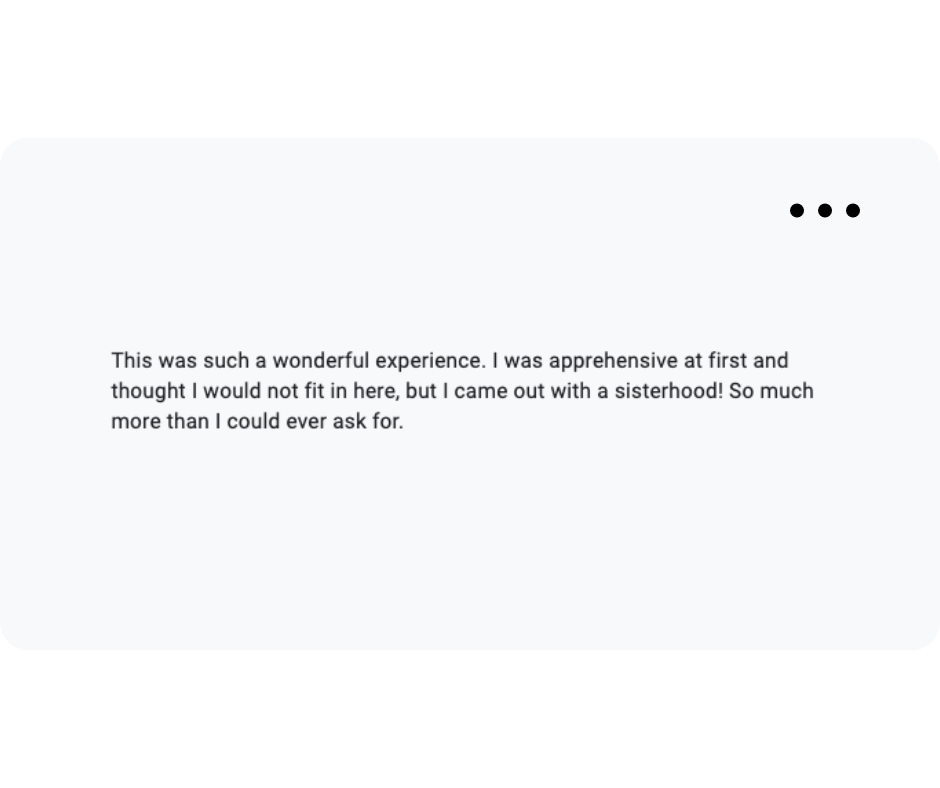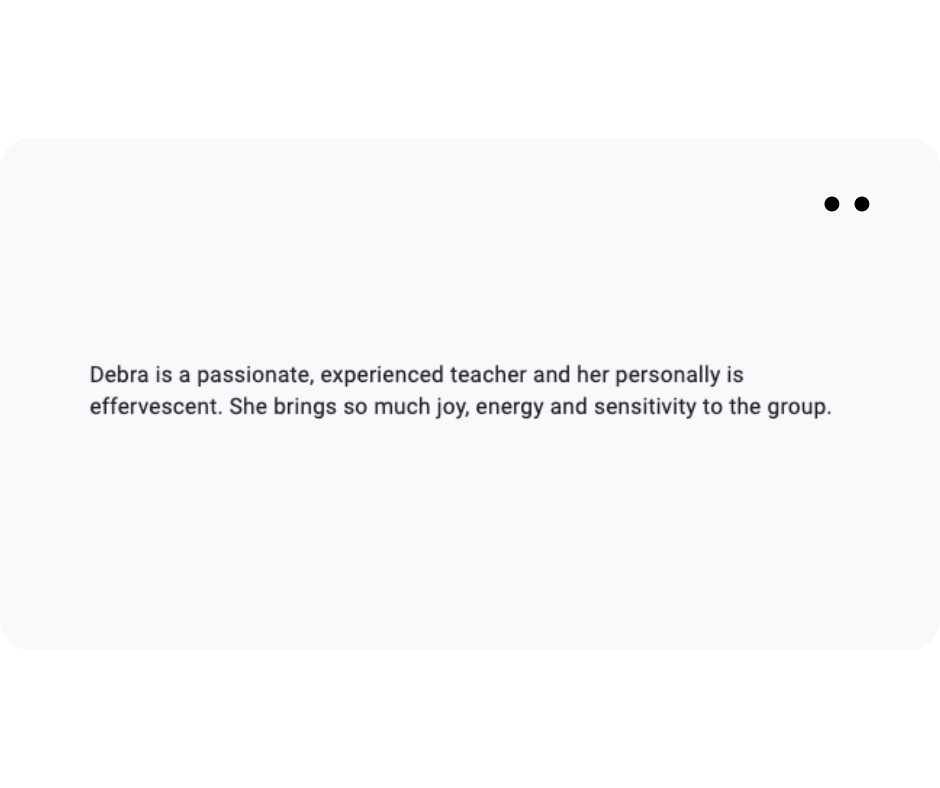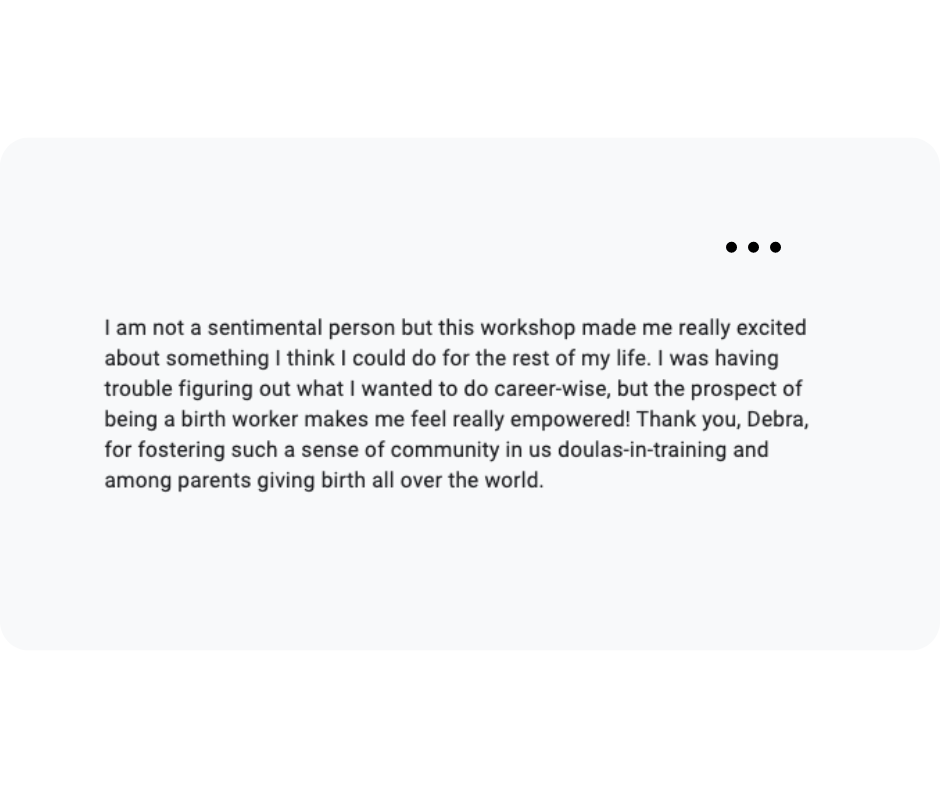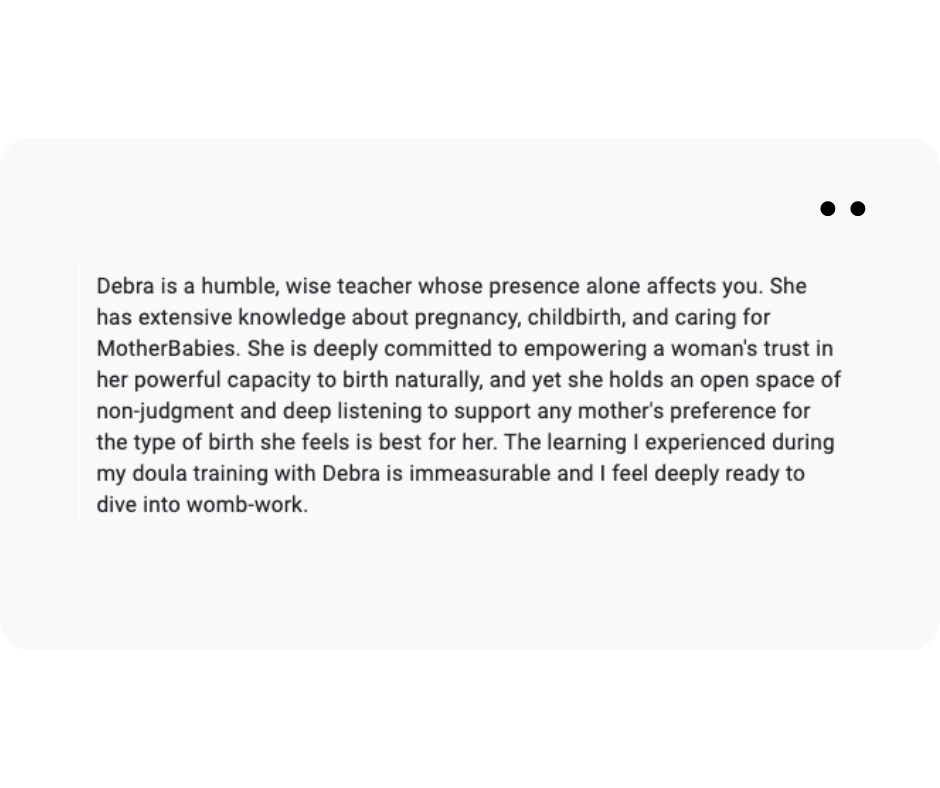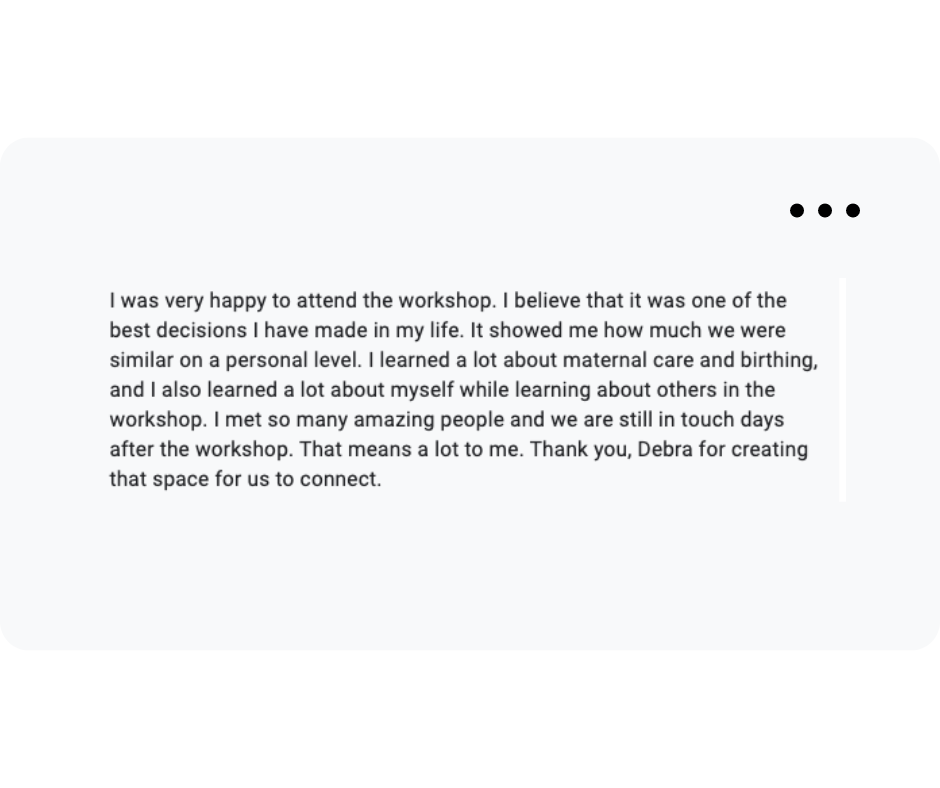Debra Pascali-Bonaro: Do you know that overthinking birth, fear and stress can slow or stop labor? Too often, people focus on the physical aspect of childbirth. And yes, that’s important. Women and labor are opening their body to the largest they’ve ever been. But we’ve talked in prior episodes about movement, dance comfort measures and positions that ease birth. But birth also asked people to open to the deepest parts of themselves to have a gentle pleasurable birth. And that is why pleasure matters. Today’s guest is here to help you understand how an inability to experience satisfying pleasure due to stress can hold you back from both birth and sex, and she has some good tips to help you overcome it.
Hi, I’m Debra Pascali-Bonaro, Founder and Director of Orgasmic Birth, and host of the Orgasmic Birth Podcast. My guest today is Dr. Nan Wise. She’s a certified sex therapist, relationship specialist, neuroscience researcher and author of, Why Good Sex Matters: Understanding The Neuroscience of Pleasure for a Smarter, Happier and More Purpose Filled Life. Her research has addressed gaps in the literature regarding the neural basis of human sexuality and garnered international attention. Her clinical approaches highlight the critical role of our evolutionary wired in core emotions and how they play in physical and mental well being. Imbalances in these core emotions contribute to anxiety, depression, stress related disorders, sexual dysfunction, or the inability to experience pleasure. This pleasure crisis is evidenced by soaring epidemics of mood disorders, stress related illnesses, and a widespread sexual recession. Dr. Nan has appeared on The Today Show and contributed her expert opinion to many media outlets and high profile podcasts such as Shameless Sex. She writes regularly for Psychology Today and Glamour. I have been waiting to talk with you, Dr. Nan, because I love your writing. I’m just starting your book right now, and so I’m truly honored that you’ve joined us today.
Welcome.
Dr. Nan Wise: I’m so excited to be here. Thank you for having me. This topic that we’re going to unpack is, I think, one of the most important things that we need to talk about.
Debra Pascali-Bonaro: I totally agree. I’d love for you to start us out. I always start with this, how did this topic become your passion? What started you on this path?
Dr. Nan Wise: I come from a long line of people whose rite of passage is your first panic attack. So it’s actually something that runs in the family. And when I first had a panic attack, it devastated me. So I began a personal and professional journey, to better understand how the brain mind works and how we can work it better. So it’s taking me into the study of sexuality. It’s taking me back to studying the brain. It’s my passion to teach what I need to know, which is how we can move ourselves out of those stressed dates where we have a hard time relaxing into pleasure and joy, relaxing into our experiences. And having just navigated this with my daughter. My daughter literally had a baby like 10 days ago. Oh, this is the second granddaughter I’ve had in a month. And prior to that I lost both my parents within a couple of months. So you know, this is life. Life is full of catastrophe there. Lastly there’s trauma, there’s drama and all the more reason to learn how to be able to lean into pleasure and joy and how the brain works and how we can work with it better.
Debra Pascali-Bonaro: A big congratulations, but also my condolences on the loss of your parents. And I agree with you, this is what we ride. The waves of loss, joy, life and all together. So can you help us? You’ve done your life’s work on this? How can we ride that? How can we address what are some of the tools that you bring? I’m sure you supported your daughters to write on how to ride the stress of pregnancy and birth, and be able to activate pleasure.
Dr. Nan Wise: I think the most important thing that I teach people, and the most important thing we need to know is how to tolerate our feelings. So I think that we’re not really taught very well. I think, if you’re lucky enough to have a very good ride, as in childhood with a very good secure attachment style, you’re probably better at that. Because when parents can attune to children, they learn how to tolerate their feelings better. So it starts with, if we can learn to tolerate our feelings, including our feelings of emotional pain, grief, loss, sadness, anxiety, we open up the possibility of being able to feel more pleasure. And it starts with the body. What I’ve brought to my book, what I’m bringing into the field of psychiatry, psychology, sexual medicine now is the understanding that we have wired into us seven evolutionarily ancient core emotional systems that are embodied emotional instincts that we share with all mammals and many other animals. And because these emotions live in our bodies, we need to be able to tune into the body channel. And the first thing I usually work with clients, whatever the issue is, is how to be more attuned to paying attention that they have a body, because everybody’s in their heads. We’ve been hijacked into social media, hijacking the way that our brains work, has been hijacked by how we use our attention now with social media, devices and everything.
So getting back to basics is, if we can adjust the quality of our nervous system by something as simple as extending the exhalation longer than the inhale, you don’t need fancy breath work. You can learn how to breathe, to pay attention to your breath. Extending the exhalation automatically kicks in the restorative part of the nervous system, and takes us out of flight, or fight, or freeze into being able to be restored present and potentially joyful. So it starts bottom up with being in your body. I also teach people the minute that they’re feeling tension or having anxiety to let that become the cue to take the long, smooth inhale, and the longer smooth exhalation. On my own journey of navigating this panic disorder and generalized anxiety, the most helpful things have not been psychotherapy in the sense of cognitive behavior therapy or psycho dynamic therapy is actually, believe it or not, you’ll probably believe that yoga, meditation, hypnotherapy stuff that got me to recognise that I could influence my autonomic nervous system and tone it down. So first things first is to recognise you have a body, and to recognise when you’re taking the journey.
Anhedonia is a result of stress, and it’s also a cause of stress. So when we’re unable to relax into pleasures every day, we’re more susceptible to stress. And then when we’re more susceptible to stress, stress depletes the body, brain, mind of the chemicals that the body, brain, mind would use to foster pleasure. Hijacks dopamine, hijacks our sex hormones and makes them all into stress hormones. So at the root, people have a lot of stress these days. There’s a lot of people suffering from anxiety. You did a great job with the intro going through all of those things. And the bottom line is if we can recognise that not only is pleasure important, it’s not a luxury, it’s a necessity for the brain and mind to work well. Leisure signals are supposed to reinforce us approaching things that feel good and are good for us. And pain is supposed to help us avoid things that are not good for us and are painful. So we’ve hijacked how we’re using our attention, how we’re living our lives, how the brain and mind works, and we can take that back. We can actually take back and focus by calming the body, and then we can take attention towards, how we can be more joyful? How can we have better boundaries? How can we listen to the core emotions and information? So each one of the core emotions, the defenses, our rage makes sense. We need to have that as a signal when somebody’s threatening us or our resources. Another one is fear. If you don’t have fear, you’re not going to be able to live successfully in the world. But if you have too much fear, it wears you down.
Another one of the defensive systems is my favorite. It’s called panic, grief, sadness. It’s the dark side of our connection to our attachment. It’s when we worry about relationships, when we have heartbreak, when we feel grief, when we have loss. There are people who are very preoccupied and worried about their relationships as an attachment style. So panic, grief, fear and rage are the defensive systems. And then we have this really cool system called seeking, and it’s powered by dopamine. It is the source of our exploration, our exuberance, or motivation to go into the world and meet our needs. And it’s powered by dopamine. And it tends to get very flattened by stress, it also tends to be flattened as a good signal giver. When we spend most of our time clicking on social media, when we are actually not interacting with people face to face, or even talking to them on the phone is really, really important. So if we listen to these core motions, the affiliative systems include the seeking one, obviously. It actually works with all the systems. Then we have care, which is the physiology of motherhood, which is the physiology of love powered by oxytocin in our own internal opioids. To the extent that that system is working, we feel a sense of well being. So that care system needs to be imbalanced if we’re too focused on care. And a lot of young mothers feel that they actually lose their sex drives, which makes sense from the chemistry perspective. Because if you have all of that oxytocin, what’s happening is the prolactin it actually kind of blocks the sex hormones in the lead system.
So if you understand these things and you navigate them, and you don’t take it personally, you don’t panic about it, going through pregnancy, childbirth, parenting can be a smoother process. You get to fill all your fields, all of them, and be able to work your system. So we talked about care powered by opioids. And there’s a very important system that’s flat in most adults. The play system is actually wired into us so that we explore and we learn. If you look at our kids, you don’t have to get them to play, they do it spontaneously. And we actually block a lot of rough and tumble play with kids. Now, we don’t let them play the way they used to, which is actually interfering with the development of the social brain, which is another issue. Read my book for all of that. So we have the play, we have the care, and then we have lust. The lust system is the circuitry that gets us the urge to merge. But I like to think of it on a bigger platform as less for life. Someone that when people are flat in terms of their ability to experience pleasure, they’re deflated in that less for life. So when we can recognise it, name and understand it, do everything that we can to sort of tolerate our feelings, work with our bodies, get out in the sunshine because that’s really important for the connection between the retina and hypothalamus, which makes all of the hormones. If we use our bodies, move our bodies, you talked about play, and be able to move our emotional states, then what we can do is we can make changes. It’s not enough to adjust to stress. We need to take a step back, listen to the stress and say, what needs to change? What do we need to do to make changes in our lives that will sustain our well being?
So for a lot of women, it’s learning how to say no. It’s for men too. But a lot of women, we’re supposed to be so relational, we’re supposed to take care of everybody. And when you look at young mothers and people with small children, they’re spending the vast majority, and it really does fall mostly on the mother across all cultures. Fathers are wonderful, and they can be very helpful. They can be very involved in the process. The majority of the workload, the hormonal load, the actual care load really falls on the woman. And in most situations, not all, but in most. So we need radical self care where we’re listening to the emotions. And if we’re angry, we need to take a step back and listen to that anger. What is not working? How do we feel that our needs are not being met, or people are not being responsive? I do a lot of couples coaching around these issues. So listening into the emotions and getting the information can help us make the adjustments to how we can kind of work with those core systems so that we can be in better balance when the defenses come down. When we feel safe. When we feel calm. When we feel secure. We can be more playful, more joyful, more creative, and all those good things that help us live in a way that we can enjoy them, rather than just tolerate them.
Debra Pascali-Bonaro: Love all the states and how you took us through them. I certainly love the playfulness because I feel like you say that we often lack that in pregnancy and birth. We’re trying to get people into that joyful, playful, and as you said, really starting with their body. What would you guide someone that’s pregnant today, hearing all that you’re saying and how they’re navigating it, what are some tools and ways that you would take them deeper into preparing for birth, because birth brings up every emotion.
Dr. Nan Wise: I really recommend to my clients in terms of going deeper to listen in. It is a very simple attunement exercise. I like to keep things simple so that people can practice, and we don’t have to do complicated breath, long, smooth, inhale, longer, smooth exhalation that kicks in that parasympathetic breath, which is calming. And that’s why people do it, checking it with themselves three times a day, what’s on their minds, what’s going on in their bodies, and what’s their emotional weather. So sometimes, journaling is actually a very effective way of discharging distress. And there’s been great research that shows how effective it can be. If you just make sure that you are tuning in, and even leaning into some of those feelings, even if they’re not pleasant feelings, just by giving yourself permission to have them practicing a kind of radical acceptance, okay, here’s where I am right now. All mindfulness techniques at its root, the active ingredient is practicing some form of radical acceptance of this moment, allowing yourself to be as you are. Being very calm, gentle, curious and caring toward the self, and listening into those feelings so that we get the information.
Sometimes for people in their bodies, they’re stored traumas, there’s experiences that have been bumpy, that the way the brain mind works, it’s kind of stored in the body. We don’t even have to remember them anymore consciously. But we have the experience of something that will trigger a feeling in the body that has something that was associated with a bad experience we have before. So if you’re having these kinds of experiences and you’re recognising that you’re having activations of upset or distress, it’s wonderful for you to be able to listen in and to get support. Having a coach who can listen to you, some people have therapists that can really be helpful. Other people can learn how to hold space for partners not to be their therapists. I teach couples all the time how to do active listening. Just listening without trying to fix, or change, or react, or just to be able to give people a chance to be heard and to hear themselves can change people’s chemistry in a way where you can go from, actually sometimes, we just need to get more upset so it can peek and release. Like I said, getting really upset can be orgasmic. You can feel the feelings fully, and then they can release. So that’s what I’m saying. Tolerating the intensity of feelings without necessarily having to ask them out, or medicate them, or try and make them go away so that those feelings can peak and release. You can have a discharge, and it can be like an orgasm in a way.
Debra Pascali-Bonaro: I love that analogy. That’s like a new analogy for me of orgasmic. I really hear you, and I can feel that as you’re talking how important it is, that release, that honoring and letting go of those feelings. But I also like all you said about being heard. And this is something we talk about a lot in labor, that women want to be heard. They want their voice, they want their choice, they need to really expel a lot of energy and emotions that are coming up for them. So these are such wonderful tips. But I have to bring back the title of your book. Why Good Sex Matters: Understanding the Neuroscience of Pleasure for a Smarter, Happier and More Purpose Filled Life. And of course, we talk about a lot here that birth is a part of a woman’s sexual life, and that sex matters and how we approach birth. What would you say about that?
Dr. Nan Wise: Expanding the notion of what sex is, I always talk to people whether it’s in the classroom, with undergraduates, or whether it’s couples who are navigating sexual issues. If we define (inaudible) to be more expansive, to be more about being embodied, more in touch with your feelings rather than having it be about genital friction and some kind of orgasm, that if you approach the experience of your pregnancy, your childbirth and postpartum as an opportunity to really kind of explore what it’s like for you to be in your body. What is it like for you to be able to feel all of your feelings? Because a lot of times, women have big feelings. During the postpartum period, the hormones go off the cliff. Some people ride that pretty easily. Other people are predisposed to things like the baby blues. And if you don’t panic, and rather you let yourself feel your feelings and you have somebody who you can trust to hold that space to just listen, whatever you’re feeling can peak and release in a way that feels almost orgasmic. It feels like this genuine good cry that you just feel, the chemistry of your brain changes when you have that release. And also physically for some women, being pregnant can be a real sexy time. They can feel like there’s this bigger uterus that has all these delicious contractions. They can feel tuned into that power of creativity. We can redefine our experience of our own sexuality in the idea of what sexuality is supposed to be designed to be intercourse. It doesn’t have to be general. It can be about being pleasured and pleasured by contact and connection face to face, flesh to flesh, intimacy, and people who have great sex throughout their lifespan. What they report is about orgasms or how many times they can have erections. What they talk about is connection with self. And for some people, connection with the Divine, like the sense of being part of this wondrous universe that we are sharing.
Debra Pascali-Bonaro: What beautiful words. Every word of Dr. Nan just totally filled my heart with joy and pleasure. You’ve said so much. Do you want to leave everybody with one last thought that you’d like to share with people that are maybe just beginning their pregnancy or venturing into early parenting?
Dr. Nan Wise: Every challenge that we experience has an opportunity embedded in it for rekindling and working our relationship with ourselves. My next book, which I’m working on now, is called, Why It’s Never Too Late to Have a Happy Childhood. So people who have not been fortunate enough to have very wonderful, secure, loving childhoods, we all can learn to update our maps of ourselves and the world to make decisions that are really more about ecologically good for us. More about prioritizing our own well being, getting out of the patterns of working too hard or feeling like we’re not okay. So I think that when you’re navigating something as big as a pregnancy, it changes your life. There’s nothing in my life that ever changed things more than when I had children. And that can be very devastating for people at times. And if you recognise that you’re not alone, you have community, your folks are community, we are community, we’re all in this together. You recognise the opportunities to let go of some of our expectations of being how we’re supposed to be or how it’s supposed to be. The pregnancy doesn’t go as you think, or the birth doesn’t go as you think, or life doesn’t go as your thing. The violation of expectations is really like the origin of all emotions. It’s better or worse than we expected, and causes us to have reactions. So every opportunity is a time for us to recommit to the practice of really unconditional positive regard for ourselves. And really being so attuned to ourselves appreciating, understanding and seeking support, feeling entitled to get the support, and the resources. I’ll leave you with one quick thing, you’re ready for this? I’m an (inaudible) hypnotherapy practitioner. And there’s one core belief that has changed my life is that we already have all of the inner resources that we need to create everything, and everybody external that we need and want. So that’s the operational definition of a really secure attachment style. And it works pretty good when you can tap into that.
Debra Pascali-Bonaro: Beautiful. Thank you so much for joining us. I know that many people, first of all, I encourage everyone to buy your book, and we will put that into the show notes. But where are other ways that people can connect with you, take your courses, be involved with what you’re offering?
Dr. Nan Wise: You go to my website, askdoctornan. You could set up a free consultation with me. If you want to jump on the phone and have me kindly help you think about, what I do is short term coaching so that I help people figure out what’s out of balance, what do they want to create, and help them with tools and practices to create new emotional habits. So I think everything that they need to know at this point would be right on my website. And I will be creating content, like a bootcamp for people on how to work the brain-mind. That’s the challenge, making it simple and accessible for everybody.
Debra Pascali-Bonaro: Such a great gift. So we will put your website into the show notes. So for everybody, wherever you’re listening, make sure you look at the notes below and click over Dr. Nan. Thank you so much. It’s truly been a pleasure. I’ve learned so much from you, as I’m sure all our listeners have.
Dr. Nan Wise: Thank you Debra and my dog Julie who have all the same core emotions in the bottom of her brain, very different at the top of the brain.
Debra Pascali-Bonaro: Thank you. And thank you to all our listeners. We always love to hear from you. Share with us your favorite takeaway or any comments that you have after listening today. And we hope you’ll join us next week on the next episode of the Orgasmic Birth Podcast.


